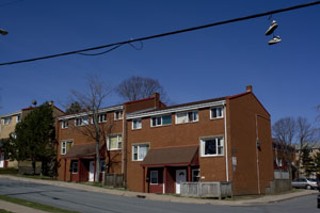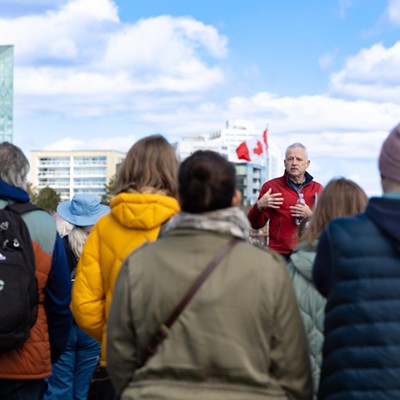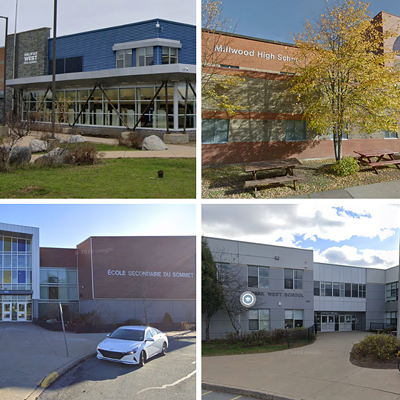"Uniacke Square faces the same threats that Africvillefaced," says Jim Silver, recalling the African-Nova Scotiancommunity that was bulldozed into oblivion in 1962.
The province built Uniacke Square in 1966 and many formerAfricville residents ended up in the public housing project.
Silver, of the Urban and Inner-City Studies program at theUniversity of Winnipeg, was in town last week to warn of "a veryreal threat" to the future of Halifax's highest-profile publichousing complex, a threat he details in a paper published by theCanadian Centre for Policy Alternatives website.
"Let me be clear," he explains. "So far as I know, there's not aplan afoot to get rid of Uniacke Square. But there are broad socialforces at work that will bring about thesame end."
Public housing projects serve an essential service, says Silver,because the free market fails to provide housing that people withlow incomes can afford. "If the market doesn't build them, the onlyalternative is for the government to build them. Uniacke Square is184 good-quality low-income units."
There are two main social trends threatening low-income housing,says Silver. First is gentrification, as low-income housing in theblocks surrounding Uniacke Square gets rebuilt or replaced ascondos for upscale residents. Rooming houses, especially, aredisappearing at an alarming rate.
A related trend is what Silver dubs "the neoliberal city"---thehip, chic inner city, where lots of high-income residents live.
"The claim that many people are making---that the presence ofupper-income residents helps the entire neighbourhood---is notsupported by the literature," he says. "People come in and theyhave very particular kinds of social and political skills, but itdoesn't translate into the kind of policies that invest inlow-income people directly."
That sort of investment should include programs tailoredspecifically towards low-income residents, he says. "In theaboriginal communities of Winnipeg, they talk a lot about'systems.' Now, you and I think of systems---the school system, thepolice system, the medical system---as positive things, but forthem, systems are oppressive. We need to rework these systems sothey are of benefit to the people using them.
"If you can create something other than the standard system,people will take the opportunities and run with them."
Silver mentions clinics and night classes he's helped establishin Winnipeg and a program offered for women in Uniacke Square thatresulted in the establishment of the "PEP-Bro Divas," an activistgroup that formed a tenants' association and advocated for theestablishment of a parents' resource centre and otherservices.
"The solution here is people---investment in people," hesays.
Instead, however, there is an ideology that argues forprivatizing units at Uniacke Square.
"It's stereotyped," Silver says of Uniacke Square. "All it is iscrime, violence, drugs. And the argument is, 'It's in the interestof the people who live there, they'll be better off because they'llown their homes.'
"It might help those tenants directly, but they'll turn aroundand sell them for $20,000 more and those units are forever gonefrom the low-income housing stock," he says. "They'll be nolow-income housing rentals available."
Eventually, such privatization will see Uniacke Square eithertransformed beyond recognition, or torn down completely.
The better approach, says Silver, is to "invest in the strengthsof Uniacke Square. Yes, there are problems. But there are manystrengths. Most people have no idea what Uniacke Square is reallylike. It's badly needed, high-quality low-income housing. There arestrong, energetic individuals and families. There's a strong senseof community spirit and really good community-basedorganizations."
That community spirit is evident when Silver gives his findingsat a neighbourhood meeting at the North Branch Library. Residentsgrill a municipal planner who suggests that HRM's "communityvisioning" process will help Uniacke Square.
"The municipality has done nothing for the average poor personfor 46 years," says a resident. "Why should we believe them now?"











